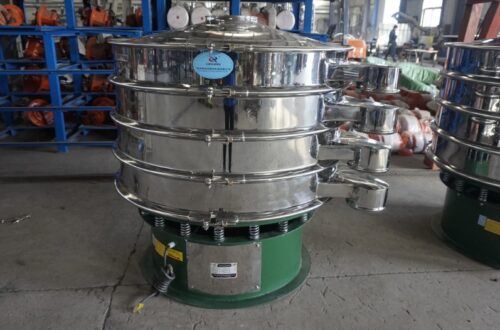
Industrial Engineering: Optimizing Productivity and Efficiency

Industrial engineering is a multidisciplinary field that focuses on optimizing productivity, efficiency, and effectiveness within various industries. It encompasses the application of engineering principles and techniques to streamline processes, reduce waste, and improve overall performance. By leveraging a combination of technical knowledge, problem-solving skills, and business acumen, industrial engineers play a vital role in enhancing organizational operations and ensuring sustainable growth.
What is Industrial Engineering?
At its core, industrial engineering aims to optimize systems and processes, considering factors such as time, resources, quality, and human factors. Unlike other engineering disciplines that primarily focus on designing and building physical structures or products, industrial engineering delves into the intricacies of how these structures or products are produced and the most efficient methods to achieve desired outcomes. It combines elements of engineering, management science, and human psychology to create efficient and effective systems.
Evolution of Industrial Engineering
The field of industrial engineering has evolved significantly over time. Its roots can be traced back to the Industrial Revolution when the need for efficient production methods became evident. Early pioneers, such as Frederick Winslow Taylor and Henry Ford, introduced concepts like scientific management and assembly line production, which laid the foundation for industrial engineering principles. Since then, the field has continuously adapted and expanded its scope, incorporating advancements in technology, management practices, and optimization techniques.
Importance of Industrial Engineering
Industrial engineering plays a crucial role in today’s competitive business landscape. It helps organizations maximize their productivity, minimize costs, and ensure optimal utilization of resources. By employing various techniques such as process improvement, supply chain optimization, and workforce management, industrial engineers identify bottlenecks, streamline operations, and enhance overall efficiency. This not only leads to higher profitability but also enables organizations to deliver products and services of superior quality, ultimately improving customer satisfaction.
Key Principles of Industrial Engineering
Industrial engineering is guided by several key principles that form the foundation of its practice. These principles include:
- Systems thinking and process optimization: Industrial engineers view organizations as interconnected systems and strive to optimize the entire system rather than individual components. They analyze processes, identify inefficiencies, and implement improvements to maximize overall performance.
- Time and motion studies: By carefully observing and analyzing work processes, industrial engineers identify opportunities for time and motion optimization. They aim to reduce unnecessary movements, eliminate idle time, and establish standardized work procedures.
- Human factors and ergonomics: Industrial engineers consider the physical and cognitive capabilities of workers when designing processes and workspaces. By optimizing the human-machine interface, they enhance worker safety, comfort, and productivity.
- Lean manufacturing and Six Sigma: Lean manufacturing focuses on eliminating waste and non-value-added activities, while Six Sigma aims to reduce process variation and defects. Industrial engineers apply these methodologies to achieve operational excellence and continuous improvement.
Scope of Industrial Engineering
Industrial engineering has a broad scope and finds application in various industries and sectors. It is not limited to manufacturing but extends to service industries, healthcare, transportation, logistics, and more. Industrial engineers are involved in optimizing supply chains, improving healthcare delivery systems, designing efficient transportation networks, and enhancing operational processes in diverse settings. The scope of industrial engineering continues to expand as new challenges and opportunities emerge in an increasingly complex and interconnected world.
Applications of Industrial Engineering
Industrial engineering techniques are employed in numerous applications to improve productivity and efficiency. Some key applications include:
- Workforce management and job design: Industrial engineers analyze job requirements, task allocation, and work processes to optimize workforce utilization. They design jobs that align with employees’ skills and capabilities, ensuring efficiency and job satisfaction.
- Supply chain and logistics optimization: Industrial engineers optimize the flow of materials, information, and resources across the supply chain. They analyze transportation networks, warehouse layouts, inventory management systems, and distribution strategies to minimize costs and improve delivery times.
- Facility layout and equipment design: Industrial engineers design and layout production facilities to maximize efficiency, minimize material movement, and ensure a smooth flow of operations. They also evaluate and select appropriate equipment and technology to enhance productivity and reduce downtime.
- Process improvement and reengineering: Industrial engineers identify inefficiencies and bottlenecks in processes and implement improvements to streamline operations. They use tools such as value stream mapping, root cause analysis, and process simulation to optimize workflow and eliminate waste.
Industrial Engineering Techniques
To achieve their objectives, industrial engineers employ various techniques and methodologies. Some commonly used techniques include:
- Operations research and mathematical modeling: Industrial engineers use mathematical models, optimization algorithms, and simulation techniques to analyze complex systems, make data-driven decisions, and optimize processes.
- Statistical analysis and data-driven decision making: Industrial engineers collect and analyze data to identify trends, patterns, and opportunities for improvement. Statistical tools and techniques enable them to make informed decisions based on empirical evidence.
- Simulation and optimization methods: Industrial engineers utilize computer-based simulations to evaluate different scenarios and optimize system performance. This allows them to test various alternatives, assess the impact of changes, and identify optimal solutions.
- Value engineering and cost analysis: Industrial engineers apply value engineering principles to analyze the cost-benefit ratio of different design choices and process configurations. They aim to maximize value while minimizing costs without compromising quality or functionality.
Tools and Software in Industrial Engineering
Industrial engineers leverage various tools and software to facilitate their work. Some commonly used tools include:
- Computer-Aided Design and Manufacturing (CAD/CAM): CAD software enables industrial engineers to create detailed designs and models of products, components, and production systems. CAM software helps in generating manufacturing instructions and optimizing machining processes.
- Simulation software and digital twins: Simulation software allows industrial engineers to create virtual models of systems and processes to test different scenarios, evaluate performance, and identify areas for improvement. Digital twins enable real-time monitoring and optimization of physical assets and processes.
- Statistical analysis tools: Industrial engineers utilize statistical software for data analysis, hypothesis testing, regression analysis, and quality control. These tools enable them to derive meaningful insights from data and make data-driven decisions.
- Supply chain management systems: Industrial engineers make use of specialized software systems for supply chain optimization, inventory management, demand forecasting, and logistics planning. These systems help in improving the efficiency and effectiveness of supply chain operations.
Challenges in Industrial Engineering
Despite its significant benefits, industrial engineering faces several challenges in its implementation. Some common challenges include:
- Balancing conflicting goals and objectives: Industrial engineers often encounter trade-offs between different performance metrics, such as cost, quality, and speed. Balancing these conflicting goals requires careful analysis and decision-making.
- Adapting to technological advancements: Industrial engineering must keep pace with rapidly evolving technologies, such as automation, robotics, artificial intelligence, and big data analytics. Industrial engineers need to continuously update their skills and knowledge to leverage these advancements effectively.
- Managing human factors and resistance to change: Implementing process improvements and changes often requires significant organizational and cultural shifts. Industrial engineers must address resistance to change, communicate the benefits effectively, and involve employees in the improvement process.
- Dealing with complexity and uncertainty: Industrial engineering projects often involve complex systems, multiple stakeholders, and uncertainty regarding future conditions. Industrial engineers must navigate this complexity, assess risks, and develop robust strategies to manage uncertainty effectively.
Career Opportunities in Industrial Engineering
Industrial engineering offers a wide range of career opportunities across various industries. Some common job roles include:
- Industrial engineer: The primary role of an industrial engineer involves analyzing processes, identifying inefficiencies, and implementing improvements to optimize productivity and efficiency.
- Operations manager: Industrial engineers can pursue careers in operations management, overseeing the day-to-day operations of an organization and implementing strategies to improve performance.
- Supply chain manager: Industrial engineers with expertise in supply chain optimization can work as supply chain managers, responsible for coordinating and optimizing the flow of materials, information, and resources across the supply chain.
- Quality engineer: Industrial engineers can specialize in quality management, ensuring products and processes meet or exceed quality standards and implementing quality improvement initiatives.
Conclusion
Industrial engineering plays a crucial role in optimizing productivity, efficiency, and effectiveness in various industries. By applying engineering principles, management techniques, and problem-solving skills, industrial engineers improve processes, streamline operations, and maximize resource utilization. With the ever-increasing complexity of business environments, industrial engineering continues to evolve and adapt to meet new challenges and opportunities. By embracing technological advancements, focusing on human factors, and employing optimization techniques, industrial engineers contribute to the sustainable growth and success of organizations.
FAQs
Q1: What is the difference between industrial engineering and other engineering disciplines?
A1: While other engineering disciplines focus on designing and building physical structures or products, industrial engineering focuses on optimizing the processes and systems used to produce those structures or products. It involves a multidisciplinary approach, combining engineering, management science, and human psychology.
Q2: How does industrial engineering improve productivity?
A2: Industrial engineering improves productivity by analyzing processes, identifying inefficiencies, and implementing improvements. Techniques such as process optimization, supply chain management, and workforce optimization are used to streamline operations and maximize output.
Q3: What industries can benefit from industrial engineering?
A3: Industrial engineering finds applications in various industries, including manufacturing, healthcare, transportation, logistics, and service industries. It can be applied wherever there are processes to be optimized and productivity to be improved.
Q4: What skills are important for industrial engineers?
A4: Industrial engineers require a combination of technical skills, problem-solving abilities, and communication skills. Knowledge of engineering principles, statistical analysis, optimization techniques, and project management is essential.
Q5: How can I pursue a career in industrial engineering?
A5: To pursue a career in industrial engineering, you can start by obtaining a bachelor’s degree in industrial engineering or a related field. Gaining practical experience through internships or entry-level positions can also be beneficial. Continuing education and professional certifications can further enhance your career prospects.
Partner Site : SEO Services, Movie News, Real Estate News, Business News Today, Hot News Today, Get Auto Repair, Business Franchise, News Technology, Fashion Sports Shoes, Health News




